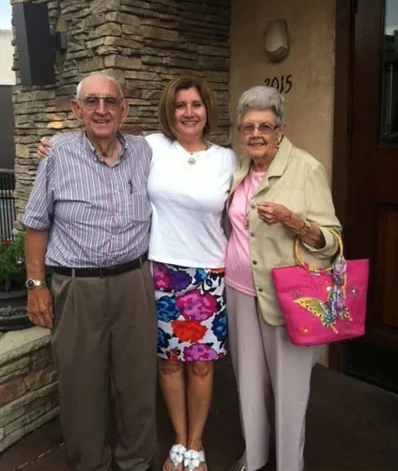— A Physician’s ‘Unwitnessed Grief’

How a Pandemic Stole the Comforts of Mourning
By Melissa Walton-Shirley, MD
On a recent walk with our labradoodle, a woman standing outside her door caught my attention. Despite the mask and cane, I recognized her as the mother of a high school friend. I stopped for a yard visit, staying at a safe distance. She gingerly came toward me, searching with her cane for places in the soft ground that would not betray her. “I miss your parents so much,” she said, tears welling. I swallowed hard. Her words and the comforting whispers of others forever suspended in the darkness and space that COVID-19 brings to grieving.
The conversations meant for funeral visits, memorials, and wakes must now occur on the occasional lawn, across the grocery aisle, or by text and social media. Despite these attempts to wrap us in kindness, the essence of unwitnessed grief feels like the south pole of a magnet that searches for, but cannot find, its north. Our planet’s deaths from COVID number over 3 million, but not everyone who died in 2020 succumbed to the viral infection. Those of us who lost loved ones to other causes share one thing with those who mourn COVID deaths: the absence of our traditional mourning rituals.
There are no lines at the funeral home or packed memorial services where mourners can feel the love and support of a sea of friends and acquaintances at our backs. There are no tables crowded with food where we can commune in honor of those we loved. We will never get that back; our grief cannot be postponed until the pandemic is over. But that’s not all. This era has also robbed many elderly people of a good death.
A Socially Distanced Death
My husband Tony and I flew back to the United States in March 2020 from a trip to Israel. We connected through JFK when New Rochelle, New York, was on fire with the viral outbreak and the country was starting toward the height of COVID uncertainty. We quarantined for 14 days and then visited my elderly mom and dad on their side porch—a door between us. Their aide and near-constant companion helped my parents get situated near enough to the door to see our faces, and we used our phones on speaker. For weeks the cool Kentucky spring did not gift us enough warmth to visit outside.
In early May, I would get the closest to my father that I would ever be again—6 feet away as he sat on the swing on their front porch. It was there that he told me what I already knew: he was dying. There was no hug to follow.
I offered to take Dad to the hospital, but he declined. He was 88 years old and afraid of contracting the virus. He survived this long because of the many magnificent devices that cardiology has to offer, but the ravages of neuropathy and congestive heart failure had taken his mobility and his will.
A week later, he was febrile and bedfast. His carer raised the bedroom window so that we could speak through the screen. Tony and I spent the day. Seeing how weak Dad was, we went home to pack a bag so I could sleep on the porch underneath his window. I needed him to know I was there just in case. As I threw my things into the back of our car, I received a text. It was a video of my father sent by the night sitter asking me if he was “okay.” He had obvious agonal respiration, an image that no amount of time will erase. He was gone by the time I arrived.
Complete Article ↪HERE↩!

One Reply to “Losing Both Parents During COVID”